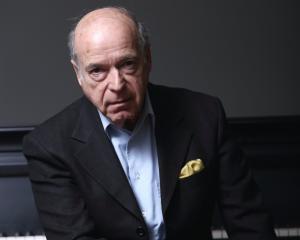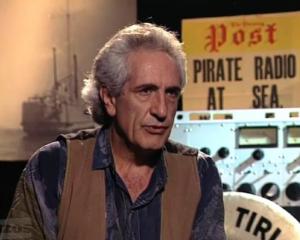"You cannot live without not only hearing the sound but also being able to make it yourself," she says.
"It's as if the cello sound resonates with being human, because the instrument is almost part of your body when you are playing it and the sound resonates through you, so it's really becoming your voice and expressing yourself. Being surrounded by a whole choir of this beautiful sound is quite indulgent."
Unlike players of most other instruments, cellists like to play together. Because cellos easily cover four octaves they can take the bass, tenor, alto and soprano voices and much music has been written or arranged for them.
Cello choirs have been popular since the 1970s when the 12 cellists of the Berlin Philharmonic Orchestra recorded Julius Klengel's Hymnus for 12 cellos.
They formed a group and toured, commissioned composers to write works for cellos and gained an international following. But cello choirs existed before that, often the pupils of a teacher playing together and passing on the tradition.
Du Plessis inherited this tradition from the late French cellist Pierre Fournier through her teachers Daniel Grosgurin in Switzerland and Amit Peled in the US, who had been a pupil of Boris Pergamenshikov.
Both Grosgurin and Pergamenshikov had also been pupils of Fournier.
"It was a very clear part of [Amit's] philosophy and teaching - and part of mine as well - that the cello class should be like a family. He decides on whether he takes you on and you take him on as a teacher, because if he does he regards you as lifelong family, and he would nurture and insist on that support among his students in an environment which is quite competitive sometimes.
"It really rubbed off on people to be more supportive and not so competitive, and to enjoy music because it can become quite stressful."
Du Plessis formed a cello choir with her students in South Africa and when she came to New Zealand was delighted to find one already here and to be invited to join.
"When I arrived - I was still in the hotel when they contacted me and invited us to a party to meet all the cellists and to be part of the choir. I was immediately absorbed into it and became the concert leader. It's all part of the belonging and friendship and family," she said.
"I find among cellists there is a characteristic warmth, and I've always found a cello choir has a different dynamic from any other ensemble or orchestra. It's really more like the feeling of being in a choir where there's sense of belonging and a sense of connection."
It was this feeling of togetherness and connection, of just enjoying making music together in a cello choir when she was a child, that inspired her to become a cellist and a teacher, she said.
In 1998, Dunedin's first cello choir was established by Euan Murdoch, lecturer in cello at Otago, but he moved away shortly afterwards and it went into recess.
In 2006 Greg Hamilton, then lecturer in cello who had experienced cello choirs in the US, established another which gave its first concert in July 2007.
When he left Dunedin in 2008, local cello teacher Judith Davis took over as director and now organises the three annual concerts. Proceeds from these go to charity.
Cellists of Otago, which has 16 members at present, brings players of all levels together, from high school pupils and university students to professional players from the Southern Sinfonia, teachers and people in the community, Du Plessis said.
The interaction between more mature or professional players and students and pupils allows enthusiasm and inspiration to rub off as well as guidance and improvements in technique for the less experienced players.
"For the university cello students it's a wonderful opportunity to be performing, and they bring a good standard to the ensemble," she said.
"Sometimes a lot of music training has to do with exams and competitions and it can even break up friendships and push people apart, but I think the purpose of music should really be to bring people together and connect people."
Hear Them
Cellists of Otago will give a concert on Wednesday July 27 at 1pm in Marama Hall. The programme includes Dunedin composer Anthony Ritchie's Theme and Variations for six cellos commissioned by Greg Hamilton for the choir; Souvenir de Sevillia by South African composer Allan Stephenson; David Popper's 1891 Requiem for three cellos and piano (with Jonathan Drummond on piano); and several other works that have been arranged for cello choir.












